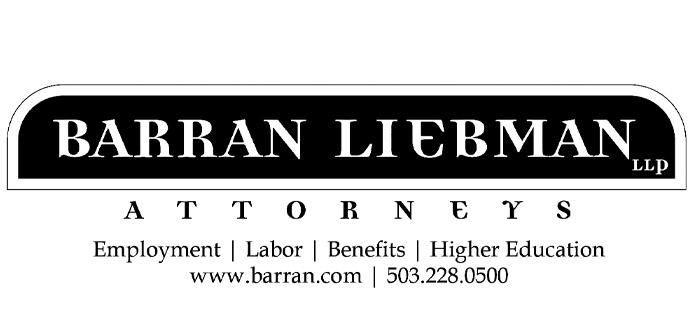Artificial Intelligence (“AI”) in the workplace has been on the rise for years. When used appropriately, AI can streamline processes and help address bias in decision-making. However, AI must be used carefully; otherwise, its use may lead to unintended compliance and privacy concerns.
Many employers already use AI to support their hiring processes. The latest craze in AI is ChatGPT, or Generative Pretrained Transformer, a cutting-edge AI-based chat platform, or “chatbot,” designed for anyone to use. For the most part, ChatGPT successfully mimics human dialogue and decision-making. ChatGPT uses reinforcement learning algorithms to decipher what the user is asking, to determine how to compile data, and then to create a response to the user’s questions.
ChatGPT and other forms of AI used in the workplace may be helpful tools to automate routine Human Resources (“HR”) tasks, like leave management and onboarding. However, AI tools are limited by the data that humans provide to them. As such, ChatGPT, like more basic AI tools used in filtering resumes, is vulnerable to providing unintentionally biased or incorrect responses based on faulty training and input.
If the system is programmed using biased or out-of-date data, the resulting algorithm will produce biased or faulty recommendations. While ChatGPT is an exciting addition to the world of AI, it is not yet foolproof.
What the Law Says about AI
There are currently no federal laws, and only a few state laws, governing the use of AI technologies in the workplace. However, the Equal Employment Opportunity Commission and the U.S. Department of Justice have provided guidance reminding employers of their responsibilities under the Americans with Disabilities Act, which still apply when any form of AI plays a decision-making role.
Additional Considerations when Using AI in the Workplace
Compliance
In addition to potential bias concerns, employers and businesses using AI chatbots, like ChatGPT, should also be wary when using it for other tasks. While the highly intelligent chatbot may be able to draft something like a handbook policy or an employment agreement that, at first glance, appears to be competent and legally sound, it may be missing important nuances relating to the company or even the law. For example, a business using an AI chatbot to prepare an anti-discrimination policy for their employee handbook may receive a policy that covers the basics. However, it is unlikely to cover any applicable legal requirements under local laws and regulations. It will also almost certainly lack the “feel” of the company and its culture.
AI chatbots are also limited by the information within their most recent update, which in the case of ChatGPT as of February 2023, was in 2021. This means that any legislative changes since 2021 will not be included in the responses users receive from the chatbot. So, if you use AI chatbots to draft workplace policies or other legal documents, it is important to have the final product reviewed by trusted legal counsel to confirm the document is compliant with the latest changes to the law.
Privacy
Employers should also consider confidentiality and privacy issues when using, or allowing employees to use, ChatGPT, or other similar chatbots, in the workplace. Although systems like ChatGPT generally warn that conversations may be viewed by the company’s AI trainers, and that users should not share sensitive information in their conversations with the chatbot, this may not be enough to prevent employees from unintentionally sharing confidential company information. With the continued evolution of AI technologies that seem to lighten the workload, employees may be tempted to use ChatGPT to complete assignments without considering the potential exposure of confidential business information.
Open source chatbots, like ChatGPT, are accessible to anyone, including hackers who can access the system’s code and modify it. By modifying the code, malevolent actors can gain access to users’ personal and confidential information to carry out cyberattacks or generate phishing emails using obtained email addresses and phone numbers in an attempt to steal passwords, credit card numbers, and other personal information.
Malware poses an additional potential threat. Malware is malicious software that is used to take control of computers and steal confidential data. Malware infections on business computer systems can have harmful effects. Employers considering using ChatGPT, or other open-source AI tools in their workplace, should consider updating their confidentiality policies to ensure they cover third-party AI tools. Alternatively, employers may want to consider blocking employees’ access to AI tools like ChatGPT, explaining the need to maintain cybersecurity.
Takeaway
AI technology may offer opportunities for automating routine HR processes, freeing up your HR team for more complex matters. However, there are some limitations to the technology and its ability to truly perform the HR function. Beware of unintentional bias, potential confidentiality breaches, and inadequate work product when using AI in the workplace. If you are considering using an AI chatbot or other AI technology in your business, avoid legal pitfalls and reach out to trusted legal counsel for guidance.
Blayne Soleymani-Pearson is an attorney and Becky Zuschlag is a law clerk at Barran Liebman LLP. For any questions on AI in the workplace or other employment matters, contact Blayne at 503-276-2190 or blayne@barran.com.





